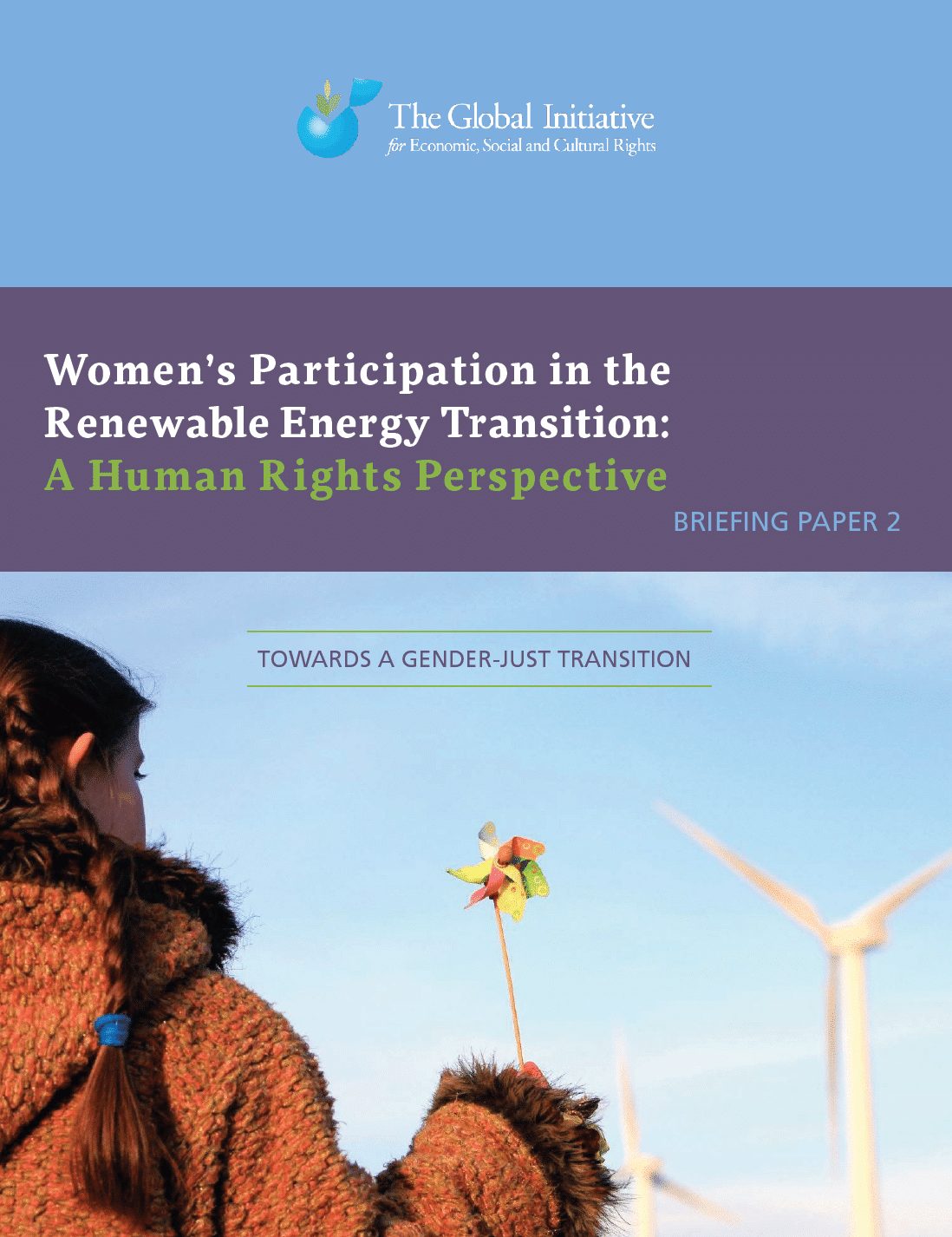Women’s participation in the Renewable Energy Transition: A Human Right’s Perspective
The energy transition has become imperative to halt the climate emergency.
In order to guarantee that the transition is more equitable and just than its forbearers, States and other stakeholders must ensure women’s right to participate in the energy transition. One of the keyways to achieve women’s meaningful participation in the energy transition is through leveraging international human rights law.
Given the vastness of the energy transition, it would be incorrect to homogenise women’s participation within the transition. Nevertheless, three key points can be made: we must engage with the substance of energy policies or projects that purport to be “participatory” to identify how this participation took place and if it was truly effective.
This requires for example, undertaking a gender intersectional analysis and searching for ‘participatory exclusions’, disaggregating gender itself so women are also empowered to engage. Finally, questions of women’s participation must be willing to engage openly with questions of power and politics.
In Myanmar, gender norms concerning women’s role in society, lack of respect for women as entrepreneurs and a consequent limited access to resources, family support and life-work balance, as well as few links to supply chains and limited availability to gender sensitive services that could be responsive to their needs are main difficulties faced by women entrepreneurs.
To combat pervasive gender roles, as part of the REACH program, Geres provided training and coaching throughout the project to give women community members the confidence and space to participate in the development of sustainable energy solutions. (…) Following COVID-19’s confinement measures, social media platforms were used for women to continue sharing their success stories, inspire others and stay in touch about challenges and struggles.
These networking opportunities were considered by women community members as valuable spaces to build capacities and long-standing relationships, as normally women do not have the opportunity to interact and exchange views on the development of economic activities in other spaces (e.g., markets and tea shops) as men often do. During the training, women strongly expressed their interest in learning to make minor repairs to energy products and appliances, ensuring goodwill after closing sales with their customers.
This briefing paper proposes solutions to best integrate women into the energy transition and renewable energy. Among the recommendations, the Empowermed collective, of which Geres is a member, offers insights and solutions for women living on the Mediterranean coast.
Information
- Edition: Global Initiative for Economic, Social and Cultural Rights
- Author: Global Initiative for Economic, Social and Cultural Rights, Empowermed, Geres, AIDA, SDF, Teri, Ombudsman
- Year: 2021
- Language: English
- Pages: 71
DOWNLOAD
Women’s Participation in the Renewable Energy Transition: A Human Right’s Perspective
WOULD YOU LIKE TO TAKE ACTION
AND SUPPORT WHAT WE DO?
Tell us who you are and find your means of action.

